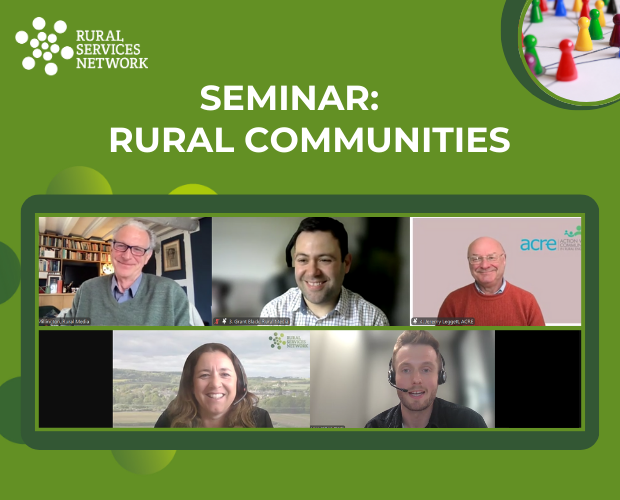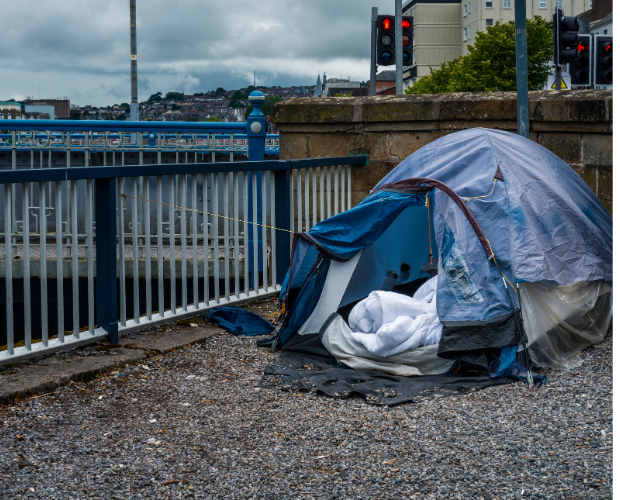T: 01822 851370 E: [email protected]
Visit RSN Survey about life in rural England to find out more.
Last week, the government announced a new set of measures aimed at improving visibility, responsiveness, and trust in local policing. As part of the broader “Plan for Change”, the Neighbourhood Policing Guarantee sets out a commitment to ensure all communities...
The report "England’s Homeless Children: The Crisis in Temporary Accommodation," recently published by the Housing, Communities and Local Government Committee, provides a comprehensive analysis of the escalating situation of homelessness affecting children across England. The report does not specifically focus...
The latest "Fixing NHS Dentistry" report by the Public Accounts Committee provides a comprehensive overview of the ongoing concerns in NHS dental services across England, with an emphasis on the unique challenges faced by rural communities. This article highlights the...
The imminent transition from traditional analogue phone systems to digital landlines has stirred significant concern among rural MPs, as highlighted in a recent parliamentary debate. Led by Damian Hinds MP, East Hampshire, the discussion explored the complexities and challenges that...
In the latest fuel poverty update from the Department for Energy Security and Net Zero, a concerning pattern emerges in England's rural communities. These areas are grappling with the highest rates of fuel poverty at 12.3%, surpassing both semi-rural (10.6%)...
The Department for Environment, Food and Rural Affairs (DEFRA) has recently announced an important update regarding the Rural England Prosperity Fund (REPF). This fund, a critical component of the government's strategy to enhance economic growth in rural areas, will continue...
Last week, we were proud to host another of our exclusive member-only seminars—this time focusing on the heartbeat of our work: rural communities. This engaging online event brought together RSN members from across the country and across the rural sectors...
The Local Government Association (LGA) has released findings from its recent survey indicating significant budgeting challenges for councils in England as they prepare for the fiscal year 2025/26. The survey underscores the growing difficulty in achieving balanced budgets and the...
We are thrilled to share that Kerry Booth, the Chief Executive of the Rural Services Network (RSN), was recently featured on the University of Birmingham’s Future Flight Social Insight podcast. This exciting series aims to spark a national conversation about...
Every child should have a loving, secure home, but when it comes to housing, children get a raw deal.’ A recent report by the Children's Commissioner has highlighted the profound impact of housing instability on children's academic performance, with a...
NEWSLETTER
Sign up to receive all our latest news and updates.
HOT TOPICS
Amid reduced public spending, fair resource allocation across regions is crucial. Despite a population larger than Greater London, rural areas receive significantly less funding for essential services, even though delivering these services in rural areas is more expensive.
Economic growth is widely acknowledged as essential for national wealth and prosperity and is a priority for political parties. Rural economies, employing millions and home to a higher proportion of small businesses, have potential for growth if barriers are removed.
Rural residents face distinct healthcare challenges, including limited access to transport, longer distances to medical facilities, an aging demographic, housing inadequacies, digital connectivity gaps, and difficulties recruiting health and care workers.
Rural communities are grappling with a severe affordable housing crisis, marked by high house prices, a lack of affordable housing, elevated living costs, and lower incomes, threatening their sustainability and vitality.
Transport is vital for the quality of life and economic health of rural areas, yet it faces challenges such as infrequent public bus services and less Government funding compared to urban regions.
Rural areas, encompassing a substantial portion of England's population and land, play a pivotal role in combating climate change and achieving the net zero target.
In an increasingly digital world, the lack of robust digital infrastructure in rural areas severely limits access to crucial services and stifles economic growth.
A future-focused vision for rural communities involves not just building the right homes in the right places but also ensuring thriving, sustainable communities.
SIGN UP TO OUR NEWSLETTER
Sign up to our newsletter to receive all the latest news and updates.













